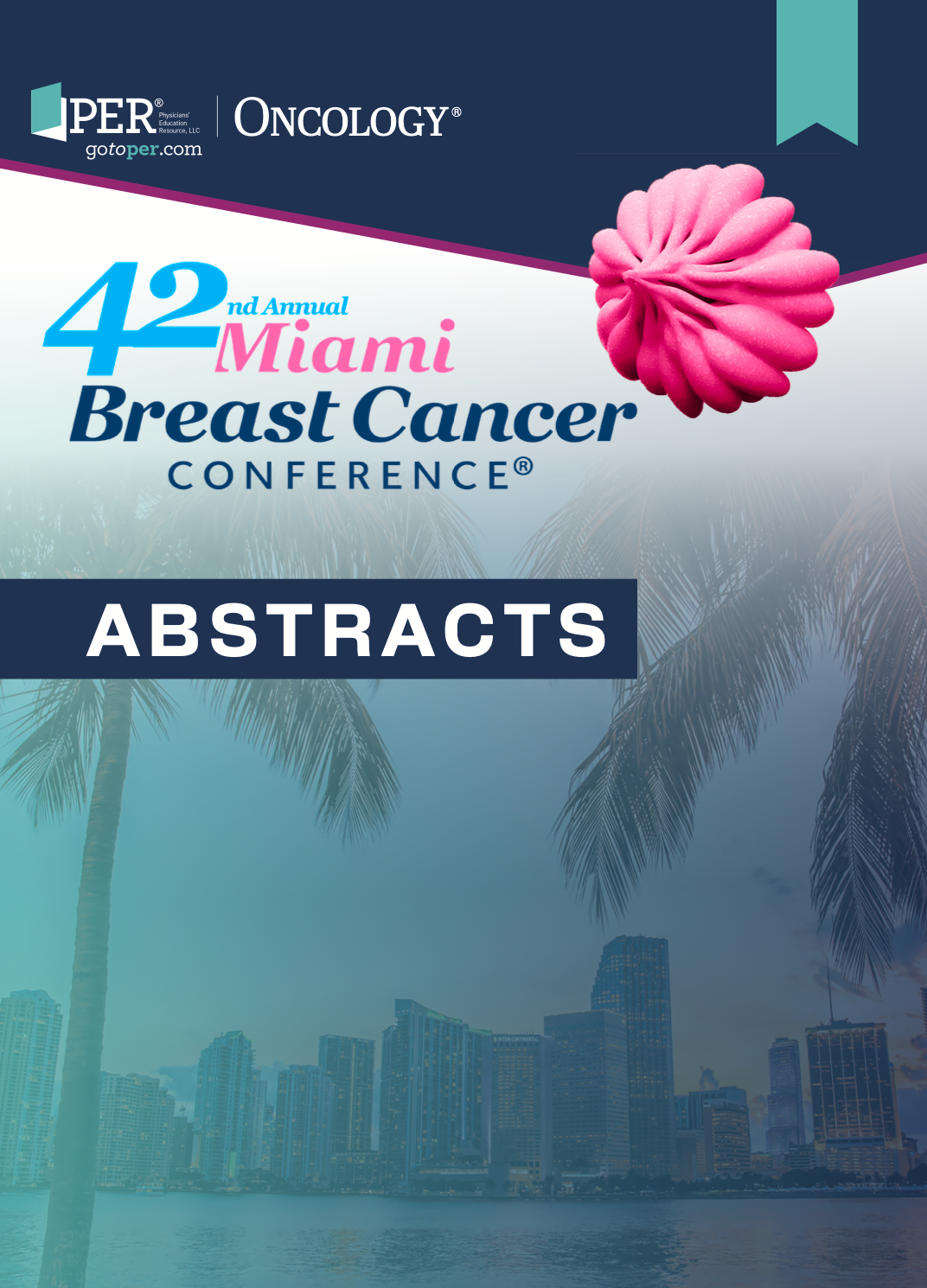TPS 25 Phase 1/2 Study of the Novel Radioligand Therapy [177Lu]Lu-NeoB Plus Capecitabine in Patients With ER+/HER2− Advanced Breast Cancer (ABC) With GRPR Expression After Progression on Prior Endocrine Therapy Plus a CDK4/6 Inhibitor for ABC
TPS 25 Phase 1/2 Study of the Novel Radioligand Therapy [177Lu]Lu-NeoB Plus Capecitabine in Patients With ER+/HER2− Advanced Breast Cancer (ABC) With GRPR Expression After Progression on Prior Endocrine Therapy Plus a CDK4/6 Inhibitor for ABC

Background
A CDK4/6 inhibitor (CDK4/6i) plus endocrine therapy (ET) has become standard of care in first-line estrogen receptor–positive (ER+)/HER2-negative (HER2–) advanced breast cancer (ABC). Despite significant improvements in survival, these patients will eventually experience disease progression. Optimal treatment sequence following progression on CDK4/6i plus ET has not yet been established and is dependent on various factors. Thus, new targeted treatments are needed for patients with ET-resistant ABC. [177Lu]Lu-NeoB (177Lu-NeoB) is a first-in-class radioligand therapy that binds selectively to GRPR. NeoRay is a first-in-human trial testing 177Lu-NeoB in advanced solid tumors. We describe the CAAA603D12101 study (NeoB D1), a phase 1/2, open-label, multicenter study evaluating 177Lu-NeoB plus capecitabine, a known radiosensitizer, in patients with ER+/HER2− ABC with GRPR expression after progression on prior ET plus CDK4/6i.
Materials and Methods
NeoB D1 includes dose-escalation and dose-optimization for 177Lu-NeoB. Eligible patients include adult men and pre/peri/postmenopausal women with ER+/HER2− ABC. Patients can have received 1 to 3 prior lines of ET for ABC, 1 of which is required to have included a CDK4/6i. For patients with a BRCA1/2 mutation, prior treatment with a PARP inhibitor is allowed. For patients with HER2-low disease, prior treatment with trastuzumab deruxtecan is allowed.
In phase 1, patients will receive 177Lu-NeoB at 150 millicurie (mCi) every 6 weeks (Q6W) plus capecitabine (1000 mg/m2 by mouth for 14 days, followed by 7 days off). If dose escalation is supported, then patients will be randomized to the 2 higher dose levels (200 mCi Q6W or 100 mCi Q3W); if dose escalation is not supported, then lower levels will be explored. Phase 2 will randomize patients to 2 dose levels of 177Lu-NeoB plus capecitabine based on multiple different scenarios. Treatment duration of 177Lu-NeoB is planned to be 6 administrations for the Q6W regimen and 12 administrations for the Q3W regimen.
The primary objectives of the dose-escalation are incidence and severity of dose-limiting toxicities and adverse effects and dose modifications of 177Lu-NeoB plus capecitabine. The primary objectives of the dose-optimization are objective response rate, clinical benefit rate, time to response, duration of response, progression-free survival, and overall survival. Secondary objectives include PK and biodistribution. Planned enrollment is about 58 patients. Enrollment is currently open. ClinicalTrials.gov ID: NCT06247995.
Status
Currently enrolling.
